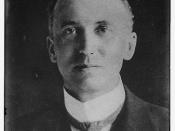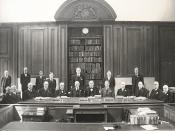Question:
Critically evaluate the development of common law principles applicable to the defence of provocation in criminal law from the decision in Mancini v DPP [1942] AC 1 to Mascantonio v R (1995) 183 CLR 58. Assess the degree to which the common law has proved inflexible in responding changing societal needs and expectations. Are there other legal means of achieving substantive justice?
At the time of the case of Mancini the concept of provocation as a defence to murder was already a well established one dating back centuries. It originated from the days when men bore arms and engaged in quarrels of violence that often resulted in a homicide being committed. For provocation to be an ample defence to murder it needed to be something which incited immediate anger, or 'passion' and which overcame a person's self control to such an extent so as to overpower or swamp his reason.
What this something can be has been the subject of many views through the centuries, and these views have strongly depended upon the type of person whom the law has regarded as deserving extenuated consideration when provoked to kill. In the words of Viscount Simon 'the law has to reconcile respect for the sanctity of human life with recognition of the effect of provocation on human frailty. ' In this regard the difficult concept of the 'reasonable man' or the 'ordinary man' has developed and with it the legal doctrine that provocation must be such as would not only cause the person accused to behave as he did but as would cause an ordinary man to so lose control of himself as to act in the same sort of way. It is therefore interesting to examine how the doctrine of common law in relation to provocation has responded to...


